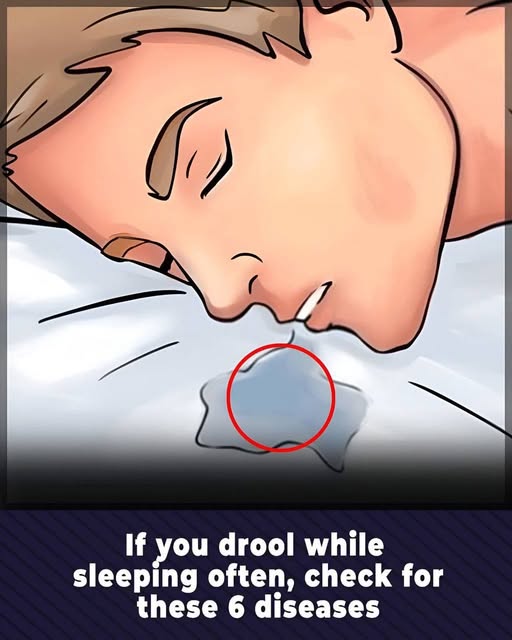Close-up of older dying man holding his wife’s hands
Conditions such as stroke, Parkinson’s disease, Alzheimer’s, Huntington’s disease, Bell’s Palsy, Cerebral Palsy, ALS, and brain damage can lead to sialorrhea, making it harder to swallow and causing drooling during sleep. Interestingly enough, a vitamin B12 deficiency can also lead to drooling issues. This is because a deficiency in B12 can also lead to neurological problems, hence the drooling.
9. Teeth Grinding
Tired and stressed Asian woman with colored hair sleeping, having bad dream, nightmare with bruxism or grinding teeth
Nocturnal bruxism (teeth grinding at night) and wearing a mandibular device can be associated with drooling during sleep. It is important if you grind your teeth while sleeping that you don’t stop wearing your night guard. Speak with your healthcare provider if your drooling is becoming a problem and they can work with you to find solutions.
10. Pregnancy
Pregnant woman feeling happy at home while taking care of her child. The young expecting mother holding baby in pregnant belly. Maternity prenatal care and woman pregnancy concept.
Salivating more during pregnancy, known as ptyalism gravidarum, can lead to excess saliva and drooling while sleeping. Other reasons for drooling while sleeping during pregnancy can be due to increased stress due to the upcoming life change, swollen salivary glands, and difficulty sleeping, again either due to mental and emotional stress, physical discomfort, or both.
Read More: Six Natural Ways To Help You Get a Better Sleep
6 Ways to Stop Drooling While Sleeping
Woman sleeping. High angle view of beautiful young woman lying in bed and keeping eyes closed while covered with blanket. Stock photo
If you are finding that your drooling is getting out of hand and you want to make it stop, there are some things you can do to achieve that. Some are things you can do yourself at home, others you may have to consult healthcare professionals or other experts in order to complete them.
1. Adjust Your Sleep Position
woman lying on her back in bed
As mentioned above, one of the number one reasons people drool at night is because they are sleeping on their side or stomach. One way to prevent this is to sleep on your back instead. If you are a dedicated side or stomach sleeper, this may take some time to get used to.
2. Home Remedies for Saliva Control
A teenage girl with wavy hair in a white t-shirt bites the lemon and grimaces in displeasure from the sour taste isolated on a beige background. Copy space.
Source: Shutterstock
Maintaining a healthy saliva balance in your mouth is essential. Some home remedies that can help reduce drooling include biting on a lemon wedge, which is believed to help thin out saliva, and staying hydrated by drinking water regularly. Keep in mind that home remedies often don’t really have much science or research to back them up. You can give these a try, but don’t be surprised if you don’t notice much difference. Also, be careful with lemons and citrus, as these can be hard on your tooth enamel and gums.
3. Mandibular Device
